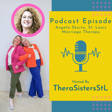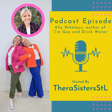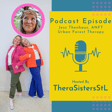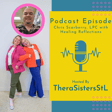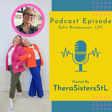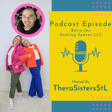
Dr. Kezia Jackson
TheraSistersStL chatted it up with Dr. Kezia Jackson (she/her), a licensed psychologist and the proud owner of Healing Spaces Psychological Services LLC, a compassionate private practice nestled in Clayton, Missouri. Her mission is clear: championing the well-being of Black individuals, people of color, women, and historically minoritized communities by providing safe, inclusive, and supportive spaces for healing and personal growth.
With over a decade of clinical expertise, Dr. Jackson specializes in psychological assessment. She helps clients understand their complex or overlapping symptoms, offering clarity and delivering personalized guidance. As a therapist, she seeks to help Black women heal from past parenting experiences and childhood events while empowering Black families to nurture and support themselves, breaking free from punitive parenting practices. Her goal is to rewrite the narrative for future generations.
Dr. Jackson earned her Psy.D. in Clinical Psychology from Loyola University Maryland in 2016, completing an APA-accredited internship at Terry Children's Center and a postdoc at UMSL's Center for Behavioral Health (CBH) in 2017.
In her downtime, Dr. Jackson finds solace at home with her spouse and toddler. At her essence, Dr. Jackson strives for every interaction to leave others feeling loved, valued, and empowered.
Connect with Dr. Kezia Jackson HERE
Keep up with the TheraSistersStL on Instagram
